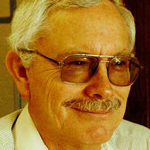Richard Morrill

Professor Emeritus Richard Morrill (Geography) has been selected to receive the 2014 UW-UWRA Distinguished Retiree Excellence in Community Service Award. Morrill was nominated for the award by colleagues on both the Seattle and Tacoma campuses.
Morrill began his teaching career at the UW in 1958, retiring in 1997 but continuing in part-time teaching until 2004 — a service period spanning 46 years.
In retirement, Morrill contributed expertise in his field to create the map that was the foundation for the recently adopted Charter Amendment 19, which created a new system electing Seattle City Council members by district. He was then contacted by the City of Everett for similar community service. His continuing efforts to address gerrymandering and other electoral abuses are visible in his service work and presentations with organizations such as the Seattle League of Women Voters and in his contributions to the 2008 and 2012 Atlases of U.S. Elections.
Morrill’s service in retirement has had both national and local impact. He conducted studies of the access of rural populations to hospital care as part of a national study for the Office of Rural Health Policy from 1990-2010, using data provided by the US Census. Locally, he completed a report on human needs in the Puget Sound region for the Puget Sound Partnership, and he serves as a board member of the Medical Legal Partnership for Children, preparing reports on the numbers and location of children at risk throughout the greater Puget Sound area.
Morrill also continues to serve the academic community through ongoing mentoring of colleagues and others who work in his field. He continues to publish and helped to organize the national meeting of the Association of American Geographers, held in Seattle in 2010. And, demonstrating ongoing concern for students, Morrill established the UW Morrill Fund for Scientific Geography, which supports graduate education at the UW.
Morrill’s nominating colleagues noted, “Professor Morrill’s retirement has really been just a new phase of his academic career, which has always included a robust community service and engagement component…. He is recognized as a geographer, a demographer, a transportation analyst, and a planner for the Puget Sound region and nationally.”

